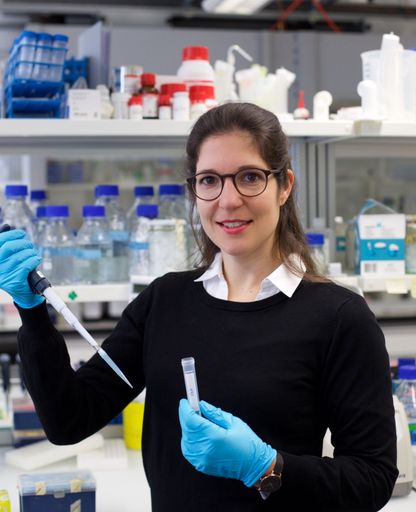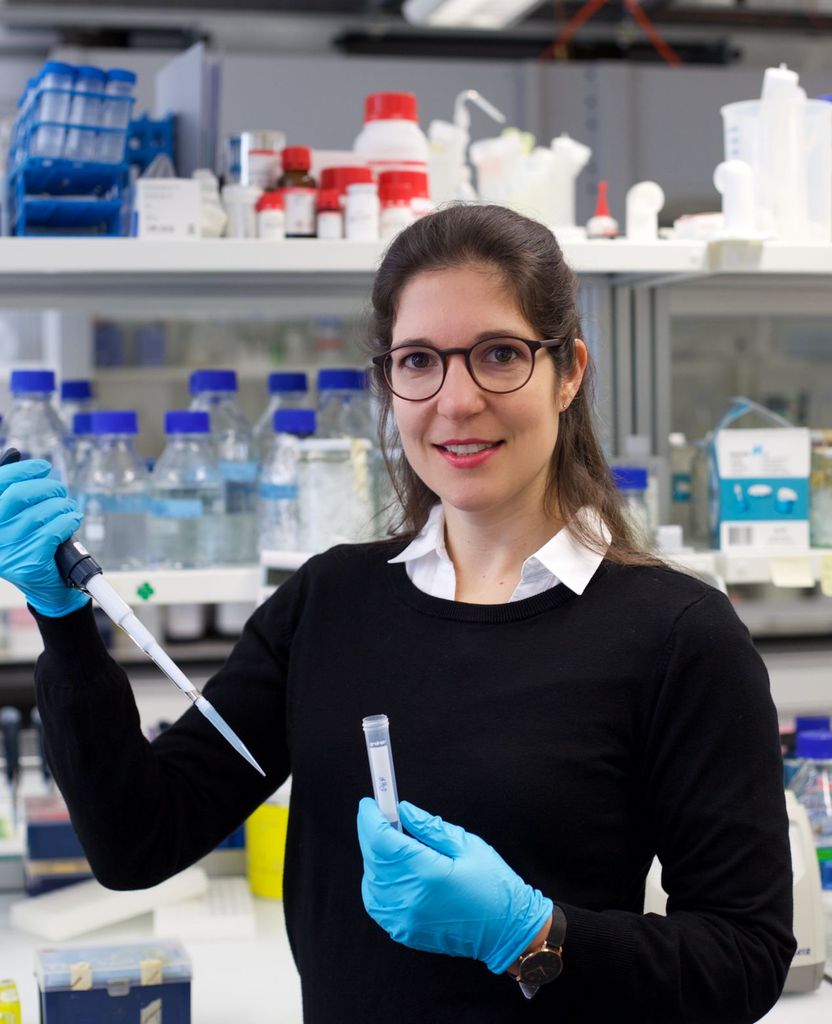Related topics

Award ceremony for the Prix Schläfli Chemistry 2019
The Swiss Academy of Sciences (SCNAT) has awarded the Prix Schläfli 2019 to the four most important insights gained by young researchers at Swiss universities. Murielle Delley has been awarded by the Prix Schläfli Chemistry 2019 for her findings, that deepened the understanding of how certain catalysts, such as those used in polyethylene production, work.
Image: Bernard Delley
Award ceremony for the Prix Schläfli Biology 2019
The Swiss Academy of Sciences (SCNAT) has awarded the Prix Schläfli 2019 to the four most important insights gained by young researchers at Swiss universities. Rebekka Wild has been awarded by the Prix Schläfli "Biology" 2019 for her findings on the structure and function of a unit in biological cells that contributes to regulating phosphate concentration.
Image: Rossitza IrobalievaAward ceremony for the Prix Schläfli Geosciences 2019
The Swiss Academy of Sciences (SCNAT) has awarded the Prix Schläfli 2019 to the four most important insights gained by young researchers at Swiss universities. Julie Zähringer has been awarded by the Prix Schläfli Geosciences 2019 for her findings in sustainability science in Madagascar.
Image: Julie ZähringerAward ceremony for the Prix Schläfli Physics 2019
The Swiss Academy of Sciences (SCNAT) has awarded the Prix Schläfli 2019 to the four most important insights gained by young researchers at Swiss universities. Matteo Fadel has been awarded by the Prix Schläfli Physics for his findings in quantum mechanics.
Image: Universität Basel
Rebekka Wild - On protein and other structures
Prix Schläfli 2019: On a beautiful spring day such at ETH Hönggerberg, we sit outside at the café to talk. Rebekka Wild seems very relaxed, as if she had nothing more important to do than enjoy the sun. However, appearances are deceptive: she works pretty much 150 per cent of a normal working day, reads specialist literature in the evenings - and yes, sometimes even a book.
Image: Rossitza IrobalievaJulie Zähringer - Bringing the extremes together
There is a small moment of confusion in our conversation with Julie Zähringer, which says a lot about her research and its particular challenges. She explained that she had done research "in an area" in which there was hardly any prior knowledge. By this, she did not mean a subject area, but a very concrete, physical one: Zähringer has worked on the margins of various nature reserves in Madagascar, where the local population is often caught in a mishmash of different national and international interests. So we are talking about geographical regions, and thus also about the people who live in them. We are therefore also talking about politics, local economies, and historically charged situations.
Image: Julie Zähringer

